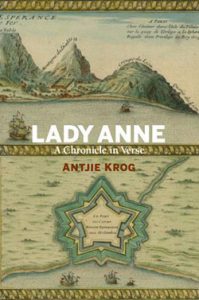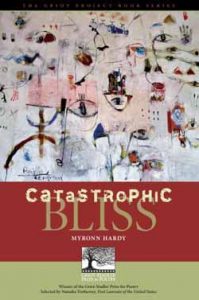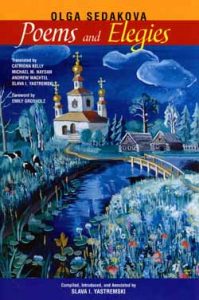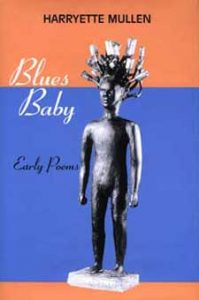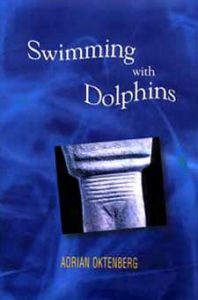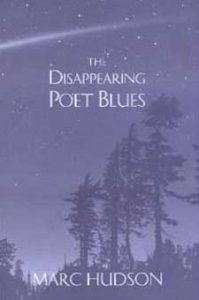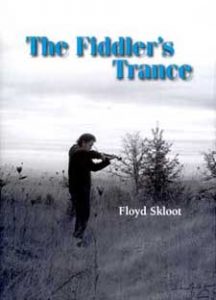April is National Poetry Month. Since its inception in 1996, National Poetry Month has evolved into one of the largest cultural events celebrating imagination, language, emotion and contemplation. On a gorgeous spring day, we invite you to celebrate the beauty of poetry with us and carry on the joy of reading poetry all year long.
Below are some of the books of poetry published by Bucknell University Press since 2000:
Lady Anne: A Chronicle in Verse by Antjie Krog
This is the first English translation of an award winning book published in Afrikaans in 1989. It engages critically and creatively with a key moment of colonial history – the time Lady Anne Barnard spent at the Cape of Good Hope, from 1797 to 1802. Usually mentioned merely as a witty hostess of fabulous parties, Anne Lindsay Barnard, the daughter of a Scottish Earl and the wife of a colonial administrator, was an independent thinker and a painter and writer of genius. Antjie Krog acts as bard and chronicles an epic about this remarkable heroine’s life in South Africa, and intertwines it with life two hundred years later in the same country but now in the throes of anti-apartheid anger and vicious states of emergency.
Strategically I do my best
1
strategically I do my best
the wheels crunch and
the cannon barrel shifts into the breach
2
the pelvis gets its familiar snap
knees easily fold their openness
even a slight slackness lets experienced lips smack
3
my days of fighting you are over.
I only want you preserved
As the one who remembers us
4
among the smoke and the slogan-shouting mouths
the accusations the violence the death in between
you belong nowhere you are the irrelevant wolverine
Catastrophic Bliss by Myronn Hardy
Catastrophic Bliss contemplates the longing to understand connections and disconnections within a world ever more fragmented yet interdependent. With allusions to Dante, Stevie Wonder, Fernando Pessoa, Persephone and Marianne Moore, these poems move from the tumultuous to the sublime: a pit bull killing an invading thief, two people on a New York City subway playing chess, Billy Eckstine recording in Rio de Janeiro, to an imagined Barack Obama writing poems to his father. Myronn Hardy’s third collection comprises war, place, love, and history all yearning to be reconciled.
Yves Bonnefoy’s book of poems, Beginning and End of the Snow followed by Where the Arrow Falls, combines two meditations in which the poet’s thoughts and a landscape reflect each other. In the first, the wintry New England landscape he encountered while teaching at Williams College evokes the dance of atoms in the philosophical poem of Lucretius as well as the Christian doctrine of death and resurrection. In the second, Bonnefoy uses the luminous woods of Haute Provence as the setting for a parable of losing one’s way.
Cipango by Tomás Harris, translated by Daniel Shapiro
Chilean poet Tomás Harris’s Cipango–written in the 1980s, first published in 1992, and considered by many to be the author’s best work to date–employs the metaphor of a journey. The poems collectively allude to the voyage of Columbus, who believed that he’d reached the Far East (“Cipango,” or Japan), not the Americas. Building on that mistaken historical premise, Cipango comments on the oppressive legacy of colonialism in Latin America–manifested in twentieth-century Chile through the 1973 military coup by Augusto Pinochet and the brutal dictatorship there–and on the violence and degradation of contemporary urban society. The author’s vision is of a decadent, apocalyptic world that nonetheless contains the possibility for regeneration.
Poems and Elegies by Olga Sedakova, translate by Slava I. Yastremski AND Michael M. Naydan
An intensely philosophical and religious poet, Olga Sedakova writes of nature, music, and the inner, spiritual life. As one of the preservers of traditional Russian culture, she stands in stark contrast to the rampant commercialization in contemporary Russian life, instead tracing her poetic roots back to the early avant-garde movements of pre-revolutionary Russia. For that stance, she endured years of censorship and silencing during the Soviet regime her poems distributed by hand in mimeographed copies or by word of mouth. This volume introduces to an English-speaking audience an extensive selection of poems by one of Russia’s most distinguished lyric poets writing today.
Blues Baby: Early Poems by Harryette Mullen
Blues Baby: Early Poems brings together Harryette Mullen’s first book, Tree Tall Woman, with previously uncollected poems from the beginning of her career. Her early poems draw inspiration from the feminist and Black Arts movements, as well as her connections to diverse communities of writers and artists. The movement of this volume is loosely autobiographical – from childhood narratives to poems about sexuality to indirect evocations of the poet’s art. Many of the poems address the subject of family and community, often emphasizing the strength of women and female friendship; some evoke culturally specific traditions and locations; others of a satiric nature offer cultural critiques. Harryette Mullen’s poetics works within various traditions, including the confessional and the performative mode of the Black Arts poets, and throughout her free-verse lyrics are written with insight, humor, and musicality, and will appeal to a diverse readership.
Swimming With Dolphins by Adrian Oktenberg
When Aphrodite rises from the sea to touch her fingertip to Sappho’s hand in “The Creation” – the first poem in Swimming with Dolphins – the world begins. From this startling and inventive recasting of creation, Adrian Oktenberg sets the tone for her second collection. An intelligent sensuality pulses through these poems of love and loss – marvelously present in the fullness of pleasure, equally present in moments of crushing grief. The poet refuses to make small any suffering, whether it is personal, as in matters of erotic or familial love, or historical and political, as in her poems on the Argentine “disappeared” and the McCarthyite period in the United States. She finds that “after plain, plenitude comes.” “Swimming with Dolphins,” the major long poem which is the centerpiece of the books, is a bold exploration of erotic possibilities between women and, at the same time, a lush evocation of the natural world. In profound ways, this book opens our senses and affirms the regenerative power of life and love, even in the face of personal or historical catastrophe.
The Disappearing Poet Blues by Marc Hudson
The poems in Marc Hudson’s The Disappearing Poet Blues are driven by a moral anguish: how do we live, they ask, in strict circumstances; what is the worth of a profoundly limited human life; how can one be both a good father and a good artist? Emblematic of the poet’s exile and endurance are the severe landscapes of the Okanogan in Washington State and the Colville Indian Reservation, where Hudsons brain-injured son, Ian, was born and lived his first year. Later poems reflect the familys move to Indiana, where the less austere contours of the Midwest suggest a mellowing of grief. The poems of the second section metaphorically wrestle with many of the same concerns: Caedmon, the first Anglo-Saxon Christian poet, tells of the burdens of song; an Irish monk on his volcanic outpost longs for his homecoming in Christ. Hudsons The Disappearing Poet Blues has an ethical music and weight; but ragged and uncertain and human as it is, it also sings the blues.
The sediment, or alluvium, deposited in a riverbed perpetually shifts and settles in response to water’s flux; in turn, its submerged contours shape the watercourse, creating shallows and rapids, treacherous holes and long placid runs, sculpting the restless shoreline.
Set in the watery landscapes of the Chesapeake Bay (the world’s largest estuary) and in Louisiana (land of braided tributaries), Katherine Soniat’sAlluvial charts the course of individual and collective histories influenced by the rich alluvium of culture and geography, ecology and autobiography. Lives large and small, recorded and unrecorded-those of Captain John Smith, Frederick Douglass, a community of Ursuline nuns, a home full of exiled children of tubercular parents, the poet’s mother, nameless others-merge into the past’s archetypal sediment, only to rise again in these beautiful poems to dance in memory’s drift and to filter a future always infused with the past.
The Fiddler’s Trance by Floyd Skloot
Poet, essayist, and novelist Floyd Skloot continues his exploration of human resilience in The Fiddler’s Trance, his third collection. Patterns of historical and personal experience in these poems illuminate the mysterious interaction of illness, loss, and creative endeavor. We can never be certain that our vital force or physical integrity will endure: Skloot’s poems consider the phenomenon of sudden change in our lives. When all we understood about ourselves and our world is called into question, we must find a new way of seeing. Mixing formal and free verse; moving freely between past and present, self and others, private and public life, the poems of The Fiddler’s Trance are concerned with the power of art to express hope honestly.
